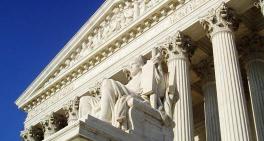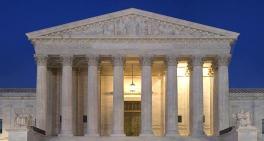U.S. Bankruptcy Courts VI
United States Courts
All bankruptcy cases are handled in federal courts under rules outlined in the U.S. Bankruptcy Code.
There are different types of bankruptcies, which are usually referred to by their chapter in the U.S. Bankruptcy Code.
Individuals may file Chapter 7 or Chapter 13 bankruptcy, depending on the specifics of their situation.
Municipalities—cities, towns, villages, taxing districts, municipal utilities, and school districts may file under Chapter 9 to reorganize.
Businesses may file bankruptcy under Chapter 7 to liquidate or Chapter 11 to reorganize.
Chapter 12 provides debt relief to family farmers and fishermen.
Bankruptcy filings that involve parties from more than one country are filed under Chapter 15.
Puerto Rico - ECF
Rhode Island - ECF
South Carolina - ECF
South Dakota - ECF
Tennessee Eastern - ECF
Tennessee Middle - ECF
Tennessee Western - ECF
Texas Eastern - ECF
Texas Northern - ECF
Texas Southern - ECF
Texas Western - ECF
Utah - ECF
Vermont - ECF
Virgin Islands - ECF
Virginia Eastern - ECF
Virginia Western - ECF
Washington Eastern - ECF
Washington Western - ECF
West Virginia Northern - ECF
West Virginia Southern - ECF
Wisconsin Eastern - ECF
Wisconsin Western - ECF
Wyoming - ECF
Related listings
-
U.S. Courts of Appeals
United States Courts 07/30/2017There are 13 appellate courts that sit below the U.S. Supreme Court, and they are called the U.S. Courts of Appeals. The 94 federal judicial districts are organized into 12 regional circuits, each of which has a court of appeals. The appellate ...
-
U.S. Supreme Court
United States Courts 07/30/2017U.S. Supreme Court The Supreme Court is the final judge in all cases involving laws of Congress, and the highest law of all — the Constitution. The Supreme Court, however, is far from all-powerful. Its power is limited by the other two branches...
-
National Courts
United States Courts 06/30/2017Judicial Panel On Multidistrict Litigati - ECF U.S. Court Of Federal Claims - ECF U.S. Court Of International Trade - ECF

Chicago Business Fraud Attorney
Business Fraud can take many forms. In the broadest terms, a fraud occurs when someone intentionally deceives others for personal gain. Many times business fraud is harmful and recovery is necessary. Losing your personal or business’s assets can devastate your entire life. Contact Roth Law Groupto receive help on restoring your business to normalcy before you were victimized with fraud. Business fraud cases can involve multiple people and complicated schemes aimed at deceiving the public, auditors, investigators, or others. Whether you are dealing with corporate fraud or commercial fraud, we can step in and fight back to receive compensation that you deserve.
At Roth Law Group we are devoted to prosecuting and defending the legal rights of individuals and small businesses, as either plaintiff or defendant. Proving fraud can be extremely difficult. To have a successful business fraud case, one must prove that the defendant purposefully set out to defraud the victim. Fraud cases are being investigated more aggressively than ever. With increasing federal regulation and scrutiny of corporate practises, many individuals and businesses find themselves the subject of business fraud investigations.




